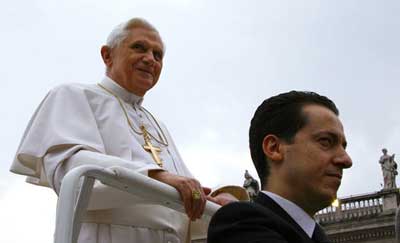Pope Benedict XVI. gave his final General audience address in St. Peter’s Square at the Vatican on Wednesday, just a day before his voluntary resignation.
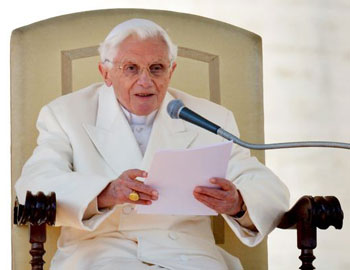
Venerable Brothers in the Episcopate and in the Priesthood!
Distinguished Authorities!
Dear brothers and sisters!
Thank you for coming in such large numbers to this last General Audience of my pontificate.
Like the Apostle Paul in the Biblical text that we have heard, I feel in my heart that I have to especially thank God who guides and builds up the Church, who plants His Word and thus nourishes the faith in His People. At this moment my heart expands and embraces the whole Church throughout the world and I thank God for the ‘news’ that, in these years of my Petrine ministry, I have received about the faith in the Lord Jesus Christ and for the love that truly circulates in the Body of the Church, making it to live in the love and the hope that opens us to and guides us towards the fullness of life, towards our heavenly homeland.
I feel I ought to carry everyone in prayer, in a present that is God’s, where I recall every meeting, every voyage, every pastoral visit. I gather everyone and every thing in prayerful recollection, in order to entrust them to the Lord: in order that we might have full knowledge of His will, with every wisdom and spiritual understanding, and in order that we might comport ourselves in a manner that is worthy of Him, of His, bearing fruit in every good work (cf. Col 1:9-10).
At this moment I have great confidence because I know, we all know, that the Gospel’s Word of truth is the strength of the Church; it is her life. The Gospel purifies and renews, bearing fruit, wherever the community of believers hears it and welcomes God’s grace in truth and in love. This is my confidence, this is my joy.
When, on 19 April almost eight years ago I accepted to take on the Petrine ministry, I had the firm certainty that has always accompanied me: this certainty for the life of the Church from the Word of God. At that moment, as I have already expressed many times, the words that resounded in my heart were: Lord, what do You ask of me? It is a great weight that You are placing on my shoulders but, if You ask it of me, I will cast my nets at your command, confident that You will guide me, even with all my weaknesses. And eight years later I can say that the Lord has guided me. He has been close to me. I have felt His presence every day. It has been a stretch of the Church’s path that has had moments of joy and light, but also difficult moments. I felt like St. Peter and the Apostles in the boat on the Sea of Galilee. The Lord has given us many days of sunshine and light breezes, days when the fishing was plentiful, but also times when the water was rough and the winds against us, just as throughout the whole history of the Church, when the Lord seemed to be sleeping. But I always knew that the Lord is in that boat and I always knew that the boat of the Church is not mine, not ours, but is His. And the Lord will not let it sink. He is the one who steers her, of course also through those He has chosen because that is how He wanted it. This was and is a certainty that nothing can tarnish. And that is why my heart today is filled with gratitude to God, because He never left—the whole Church or me—without His consolation, His light, or His love.

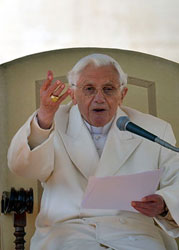
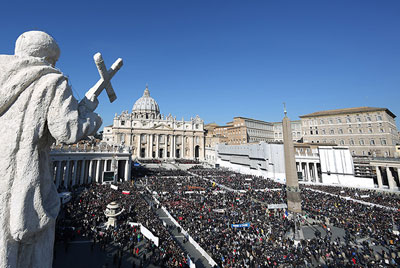
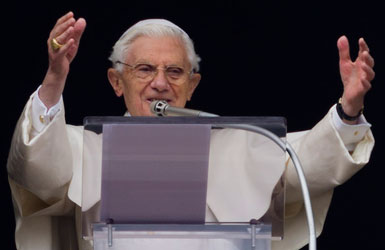 As on how the outgoing Pope should be addressed in the future, had been discussed over and over again. “Emeritus Bishop of Rome” was a hot favourite. Lombardi also said, the 85 Ratzinger will wear a “simple white cassock” after February 28. While he will no longer wear his trademark red shoes, Benedict has taken a liking to a pair of hand-crafted brown loafers made for him by artisans in Leon, Mexico, and given to him during his 2012 visit.
As on how the outgoing Pope should be addressed in the future, had been discussed over and over again. “Emeritus Bishop of Rome” was a hot favourite. Lombardi also said, the 85 Ratzinger will wear a “simple white cassock” after February 28. While he will no longer wear his trademark red shoes, Benedict has taken a liking to a pair of hand-crafted brown loafers made for him by artisans in Leon, Mexico, and given to him during his 2012 visit.